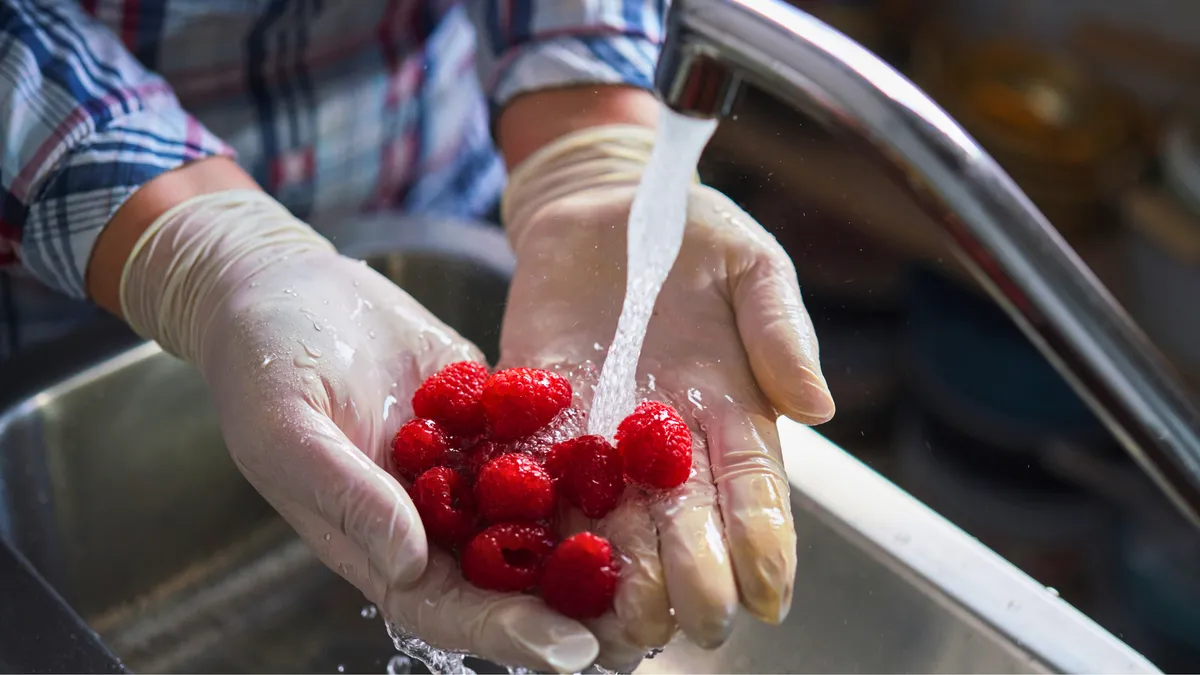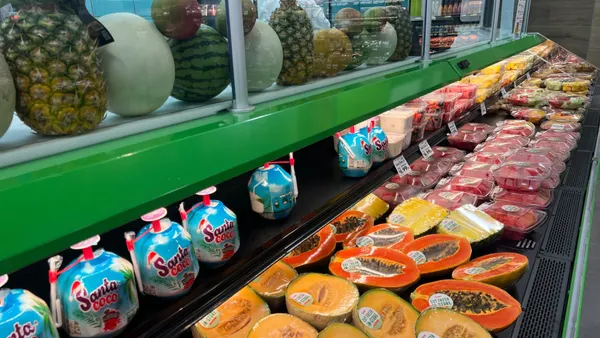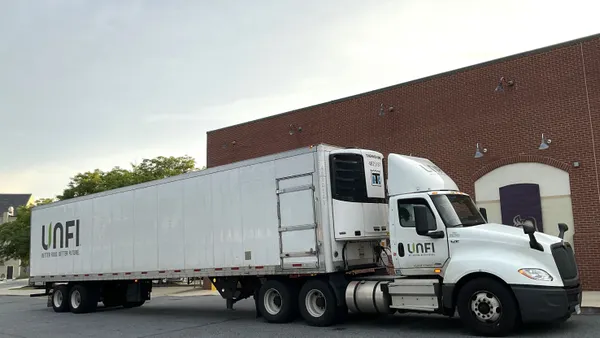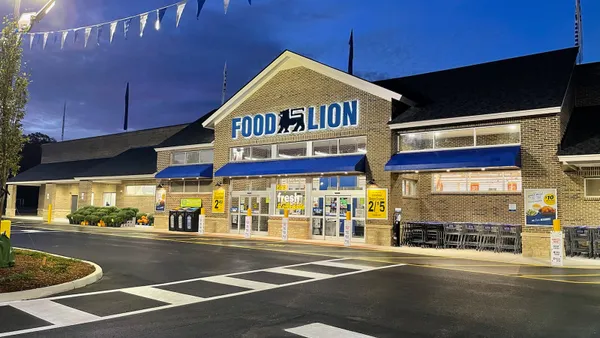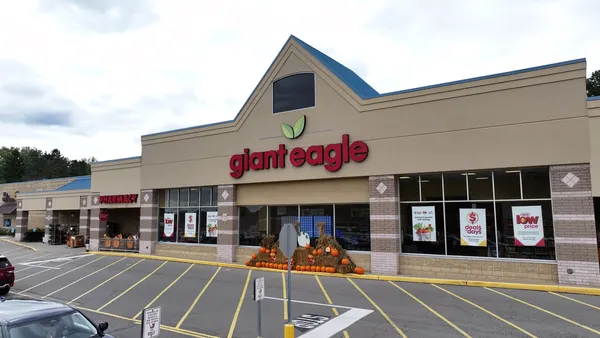Retailers on the journey to meet the 2026 compliance date for FSMA 204 have a lot to learn from each other.
The traceability rule, part of the Food Safety and Modernization Act (FSMA), will allow for faster identification and rapid removal of potentially contaminated food from the market. The FDA has designated impacted foods to a Food Traceability List (FTL) – and retailers and suppliers must simultaneously meet record keeping requirements for this list by January 20, 2026.
But the new rule is particularly challenging because it hasn’t been done before. With no case studies to follow, “we couldn’t phone a friend,” says Michelle Leger, Sr. Manager Quality Assurance, Lunds and Byerlys, when asked how the company started its work to comply with FSMA 204.
I sat down with Leger to understand how the family-owned, 85-year-old grocer, known for exceptionally high standards, kicked off its path to compliance for the company’s food production facilities, stores, and distribution center – and how getting past the first steps made FSMA 204 much more approachable.
Sally Robinson: Tell us a little about your role at Lunds and Byerlys:
Michelle Leger: We have retail stores, two food production facilities that primarily create food products that we sell at our own stores, and a produce distribution center as well. I oversee quality assurance for those three groups.
Robinson: What do you see as the biggest benefit to the FSMA 204 compliance.
“We really see FSMA 204 as the beginning of the future of grocery.”

Michelle Leger
Sr. Manager of Quality Assurance, LUNDS & BYERLYS
Leger: We really see it as the beginning of the future of grocery. It could be seen as the next evolutionary step for retail grocers to keep up with the modern, digital world. So, this idea of tracking lot codes, that we don't do through the supply chain now, will enable us to use this as a launching pad for what else we can utilize this data for.
If we're tracking the lot code, we can also track the expiration date of the lot, which can give us more control of inventory at the store level, allowing us to rotate product and maintain inventory levels more efficiently. In a more practical sense, if we can see exactly how much of a specific lot code we have in store and when it expires, we could put the item on sale before it times out. This can help reduce food waste and make sure that we get fresher product faster.
Robinson: How do you see FSMA 204 mattering to shoppers, or will they know anything about it?
Leger: It depends on the shopper. A lot of consumers are more informed than they once were. The fun part is, the better we are as a company, the less the consumer has to worry about, because they trust us to ensure we're in compliance and that we're selling the safest, highest quality food products.
Our customer base will likely be somewhat informed because that's the nature of who they are. I see it impacting them when there is say, a national recall on romaine lettuce. Lunds and Byerlys will still potentially have romaine lettuce on our shelves, but we will know it's safe.
Robinson: How does your company feel about FSMA 204?
“FSMA 204 is the springboard for cooler things that we can do in the future because data is what we need to make decisions — to make the right decisions — and this gives us more data, more specific, trackable, collectible data that we can analyze.”

Michelle Leger
Sr. Manager of Quality Assurance, LUNDS & BYERLYS
Leger: We’re excited because we view it as a springboard for things that we can do in the future because data is what we need to make decisions — to make the right decisions — and this gives us more data, more specific, trackable, collectible data that we can analyze.
“The projects that are the most work and are the most difficult are often the most rewarding.”

Michelle Leger
Sr. Manager of Quality Assurance, LUNDS & BYERLYS
The projects that are the most work and are the most difficult are often the most rewarding. So, we're focusing on how the regulation will drive changes to our business that have other benefits. How can FSMA 204 help centralize financial processes or get our receiving procedures for data collection reemphasized, or how can we increase our technological capacity as a company. These would all be ways that make the food supply safer and give us that data-driven decision-making ability — and it's a lot of work, but we think it's worth it.
Robinson: How do you structure this new work that you're dealing with?
Leger: It starts with leadership. We can't do this without leadership support, that's been one of the primary drivers in getting resources to get a team together. We've got retail operations, food production and produce distribution involved, as well as each category team, quality assurance and finance, because it touches so many of our company's work groups.
Robinson: What are some of the biggest challenges in complying with FSMA 204 or understanding it?
Leger: In the beginning, understanding the rule was the biggest challenge. There are exceptions to rules, and then there are exceptions to the exceptions. It is its own puzzle, and it was difficult for us to even know how much time and resources to dedicate to the project when we didn't understand the rules. So that was a big lift of almost six months of just hitting the ground with research.
“The part we struggled with the most was we couldn't phone a friend or follow another company's lead because this is new territory for all.”

Michelle Leger
Sr. Manager of Quality Assurance, LUNDS & BYERLYS
The part we struggled with the most was we couldn't phone a friend or follow another company's lead because this is new territory for all. The fear of the unknown gave it more of a presence than it probably would've had otherwise. But now that we've broached what it is and how it works, that fear of the unknown goes away, and it becomes more approachable. Now it's starting to come together in the ‘how does this work sense?’.
Robinson: What actions are being taken before 2026?
“We created this little mini network of experts.”

Michelle Leger
Sr. Manager of Quality Assurance, LUNDS & BYERLYS
Leger: We use a lot of outside resources. We didn't just sit down and read the entire FSMA section. It's a little dry reading, so there are vendor partners. We used FMI for some of their webinars and information that's available. We reached out to suppliers to find out if they had information or contacts. We did a lot of Googling because that's what a lot of people do nowadays to find out who's in this space and what do they have to say about it. We also found legal subject matter experts to help us with some of the finer details of what's covered and what's not — and there's all kinds of, ‘well, what about this use case, this product type, what exactly are we going to be expected to do?’. So, we created this little mini network of experts to help us with our own process.
Robinson: What are the next steps for Lunds and Byerlys?
Leger: The next steps for us are data collection from our category teams and buyers so that we can reach out to suppliers. This will be a very big supplier partnership initiative, and we want to work with them on this project.
We're asking them, ‘where are you at in your FSMA 204 journey?’ and ‘do you have an idea if you're going to use external software, and how do you plan to give us the data?’. This will help us select a Traceability vendor that can help make this work for all of our suppliers. Understanding the small manufacturer or harvester exemptions will be important for us too as we reach out as the next step of our process.
Robinson: What technologies are going to help your company with compliance?
Leger: We are looking at a cloud-based technology system that has multiple data exchange methods and that can integrate with other supplier systems. Also, scanning and photo capture technology that can recognize specific pieces of data on paperwork will be important, because we will have some small suppliers that don't have technological capabilities to integrate with a system. We might get some information on paper, and we need to have a solution that is able to accept that data in an automated form.
Robinson: How likely are you to engage with multiple solutions for answers?
Leger: We prefer to select a single Traceability software program. We've done some very preliminary vendor demos just to see what's out there, and there's a huge range. We'll likely end up picking one system that integrates well with suppliers and all of our internal facilities.
Robinson: What advice do you have for other peer companies working towards FSMA 204 compliance?
Leger: I would tell other companies don't expect to get the research right the first time. When I was conducting research, I got things wrong, and I presented data incorrectly because there's some gray area and there's some information that one person or one company interprets one way, and another company interprets a different way. So be open to being flexible and have the time dedicated to that research and development stage.
I’d also recommend you educate as many people in the company as possible because most of the initial reaction for people I talk to is a very wide-eyed ‘wow, that's a huge deal’. We had our first set of info sessions where we simply gave our internal stakeholders the FSMA 204 information and then let that sink in for a few months before we then said, ‘okay, now here's where we're going to start, with these small bites’. We found that people were a lot more open and willing to participate because they had time to sit with it.
Robinson: What is one thing you'd like to ask companies that might be farther along in the process?
Leger: How are you going to do it is one of my biggest questions. When we start to reach out to suppliers, we're going to ask them, if they're going to use an external vendor for Traceability software, who is it?
Robinson: What have you personally learned from this experience so far?
Leger: I'm the project manager for FSMA 204, but I've only been with the company for a year. This process has given me a strong tutorial of how our company operates from a systems perspective. I also get to work with people I wouldn't normally work with. Internally, it strengthens our relationships. It breaks down those silos because it's all of us together.

